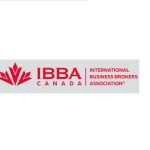Buying a business can be an exciting and rewarding way to enter the entrepreneurial world, offering the advantage of an established brand, existing customers, and operational infrastructure. However, purchasing a business is a complex process that requires careful planning, thorough research, and strategic decision-making. Here’s a step-by-step guide to help you navigate the process and make an informed investment.
1. Determine Your Goals and Budget
Before you buy business in Canada, it’s essential to define your goals and budget. Consider the type of business you want to own, the industry, and the size of the business that aligns with your interests, skills, and experience. Some buyers may seek a family-owned business with a local presence, while others may be interested in a larger operation or a franchise opportunity.
Your budget will play a significant role in determining the types of businesses available to you. Be sure to account for the purchase price, due diligence costs, working capital, and any potential investments required to grow the business. Having a clear understanding of your financial capacity will help you narrow down your options and avoid wasting time on businesses beyond your means.
2. Research Available Businesses
Once you have defined your criteria, start researching businesses for sale. Popular platforms such as BizBuySell, BusinessesForSale.com, and BizQuest list various businesses, providing detailed descriptions, financials, and contact information. You can also approach business brokers, who can offer personalized assistance and connect you with off-market opportunities.
Take your time evaluating the industry, market trends, and the business’s current performance. It’s crucial to assess factors such as customer loyalty, profitability, and competition to ensure you’re buying a viable business with long-term growth potential.
3. Conduct Due Diligence
Due diligence is the process of thoroughly investigating the business before making a purchase. This step is critical to identify any potential risks, liabilities, or hidden issues that could impact your investment. Review financial statements, tax returns, employee contracts, customer lists, and legal documentation to assess the business’s health and stability.
Hiring professional advisors, such as accountants, attorneys, and business consultants, can help you evaluate financial records and ensure that the business complies with all legal and regulatory requirements.
4. Negotiate the Terms and Close the Deal
After completing due diligence and deciding that the business is a good fit, it’s time to negotiate the terms of the sale. Work with your attorney to draft a purchase agreement that outlines the purchase price, payment terms, contingencies, and other important details.
Once both parties agree on the terms, the deal can be finalized, and ownership can be transferred. Be prepared for a transition period, during which you may work alongside the current owner to learn the business operations and ensure a smooth handover. Refer Link: https://ibbacanada.org/
Conclusion
Buying a business is an exciting opportunity that offers potential for success and growth. However, it requires careful consideration, due diligence, and financial planning. By following these steps and seeking professional guidance, you can make an informed decision and acquire a business that aligns with your goals and aspirations.






Comments